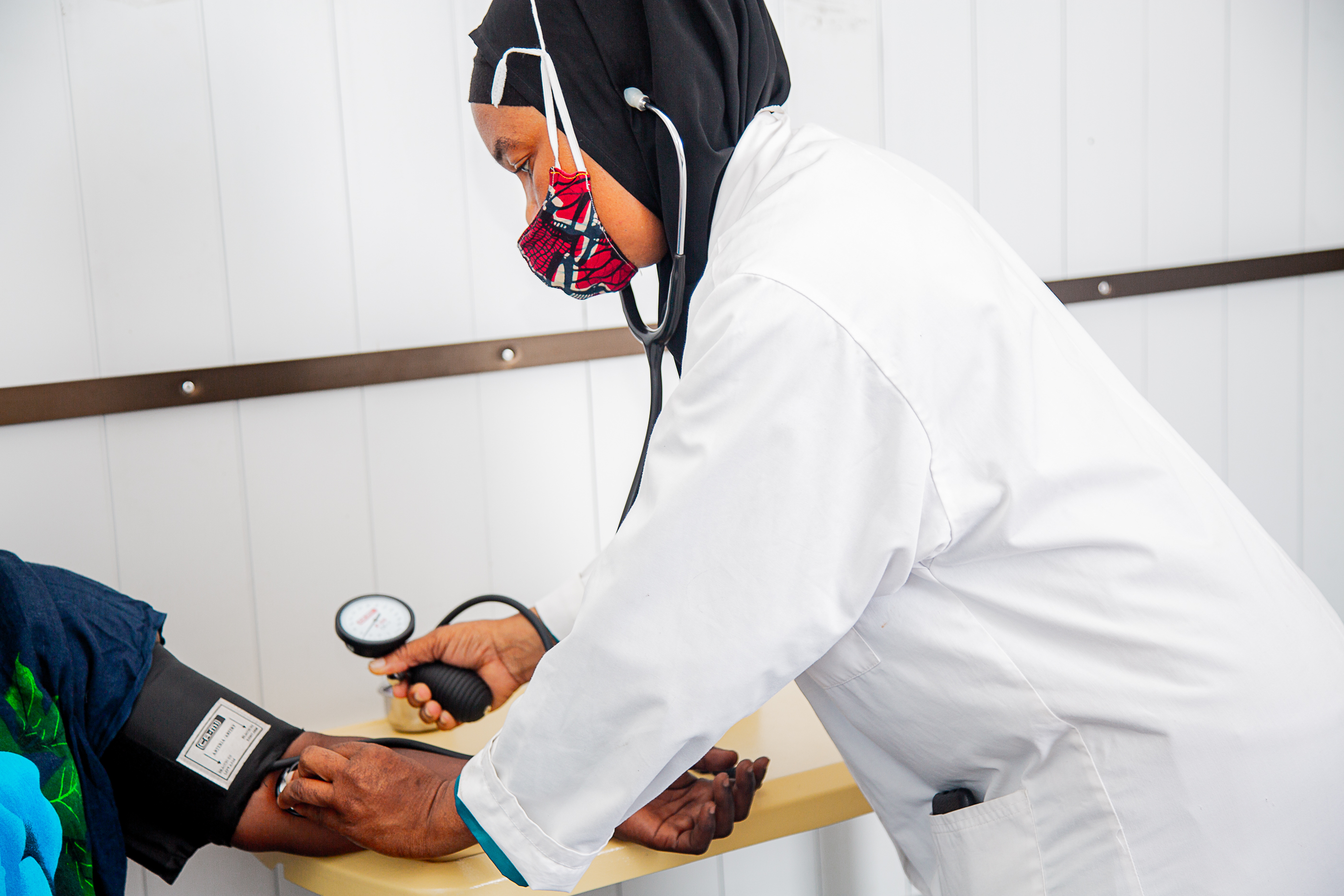
HIV FIGHT: Scientists list barriers and aids to diabetes, hypertension care in Tanzania

A study conducted in Dodoma, Tanzania recently to understand the barriers and facilitators for prevention, early diagnosis and safe effective care for diabetes and hypertension among People living with HIV found fragmented services, lack of protocol for screening non-communicable diseases and limited access to diagnostic equipment.
People living with HIV are at a heightened risk of developing diabetes and hypertension. Often services are separate for HIV and non-communicable diseases (NCDs), but how this impacts NCD care among those living with the virus was unknown.
This study’s findings, which Ifakara Health Institute’s Elizabeth Senkoro contributed, were published on the BMC Public Health journal in November 2023. Elizabeth works with the Chronic Diseases Clinic of Ifakara (CDCI), which is run by Ifakara and partners. The study involved healthcare professional and HIV patients.
“Three themes were found: organizational or healthcare system factors, individual factors and syndemic factors. Organisational or healthcare system factors comprised the only facilitators for prevention (education on lifestyle behaviours and counselling on adherence),” the scientists report.
Here are the barriers
According to the scientists, the same theme included the most barriers overall. “Fragmented services, no protocol for NCD screening and lack of access to diagnostic equipment were barriers for early diagnosis whereas the former plus lack of continuity of NCD care were barriers for safe effective care,” they report.
They further report that individual factors comprised four sub-themes, three of which were considered facilitators: healthcare professionals’ knowledge of NCDs for early diagnosis, self-monitoring of NCDs for safe effective care and their personal practice for both early diagnosis and safe effective care.
“[Their] knowledge was simultaneously a barrier for prevention and knowledge [of those living with HIV] was a barrier for prevention and safe effective care. Syndemic factors comprised three sub-themes; all were barriers for prevention, early diagnosis and/or safe effective care: poverty and mental health… and HIV stigma,” they report.
The scientists further report that educational sessions on lifestyle behaviors and adherence to antiretroviral therapy at comprehensive care clinics were noted as crucial aids. However, gaps in knowledge among both health professionals and those living with the virus regarding the link between HIV and diabetes or hypertension were also evident.
“Many people living with HIV reported receiving insufficient education on non-communicable diseases before diagnosis, emphasizing a disconnect in understanding the link between lifestyle behaviors and NCD prevention,” they write.
Poverty plays a vital role
For safe and effective care, poverty and stigma remained formidable barriers. Affordability issues drove people living with HIV to seek medications for non-communicable diseases outside hospitals or resort to traditional medicine, leading to complications and hospital admissions. Fragmented care between clinics resulted in inadequate oversight of medications, posing risks of drug interactions and compromising patient safety.
“Such difficulties in receiving non-communicable diseases medications were said to also cause people living with HIV stress and negatively impact their mental health and wellbeing. People living with HIV said they are often reluctant to share their HIV diagnosis with Outpatient department (OPD) Healthcare providers due to fear of being stigmatised, and… because they do not understand the importance of doing so (an individual factor related to knowledge),” the scientists report.
Now, what next from here?
The scientists conclude that the factors — organizational or healthcare system, individual, and syndemic — are interconnected, presenting both barriers and facilitators affecting the prevention, early diagnosis, and proper care of diabetes and hypertension among those living with HIV in Tanzania.
“The findings underscore the necessity for both large-scale initiatives and targeted interventions to integrate care effectively, mitigate syndemic barriers, and improve the quality of life [for those living with HIV while also] managing NCDs in Tanzania and across sub-Saharan Africa,” the scientists recommend.
And here is the study team
This study, which Ifakara’s Elizabeth Senkoro contributed to, was led by Tiffany Gooden from The Institute of Applied Research, University of Birmingham. Other contributors include Mkhoi Mkhoi, Mwajuma Mdoe, Lusajo Mwalukunga and Stephen Kibusi from the University of Dodoma (UDOM), and, G Neil Thomas, Krishnarajah Nirantharakumar, Semira Manaseki-Holland and Sheila Greenfield from the University of Birmingham.
>> Read full publication, here.
